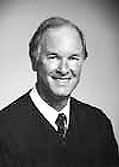California appeals court finds lesbian co-parent has no support obligations after split-up
A unanimous three-judge panel of the California Court of Appeal for the Third Appellate District has rejected an attempt by El Dorado County child welfare officials to force a lesbian co-parent to provide child support for the children of her former partner. The May 20 ruling found that a lesbian co-parent in California who is not a registered domestic partner and has not adopted her partner’s children cannot be held responsible for the children’s support.
Though Elisa and Emily had talked to a lawyer about adoption, they never formalized the process and separated in late 1999. Emily and the twins remained in the house, which Elisa owned, and Elisa promised to provide some ongoing financial support. In May 2001, however, Elisa informed Emily that she was no longer working full-time and could not continue providing financial assistance. Shortly after, Emily filed for public assistance, and El Dorado County decided to go after Elisa for child support payments.
The county successfully persuaded Superior Court Commissioner Gregory Ward Dwyer to hold Elisa responsible for supporting the twins. Relying on an important 1993 California Supreme Court decision involving surrogate parenting, Dwyer found that the couple had intended for Elisa to be a parent of Emily’s twins, and having acted consistently with that intent, Elisa should be considered a parent who has support obligations. Dwyer also accepted equitable arguments under California common law, holding that Elisa could not deny her parental status because she agreed before the children were born that she would work full-time to support the family while Emily stayed home with the children.
Elisa appealed the ruling, and the court of appeal rejected all of the grounds that the Superior Court cited, reversing its ruling.
Scotland pointed out that California courts have consistently rejected the argument that a lesbian co-parent can be considered a legal parent under California law, which limits parental status to a birth parent or an adoptive parent. The 1993 precedent did not apply, according to the opinion, since under California law, a child can have only one “natural” mother and the surrogacy case aimed to establish who that was.
This case, observed Scotland, was quite different.
“Here, Elisa has no genetic consanguinity with the twins, she did not give birth to them, and she has not adopted them,” he wrote.
Emily is the natural mother of the twins, a fact that neither woman disputed.
Scotland also accepted Elisa’s common sense argument that because California law would give her no right to seek custody or visitation, it should impose no obligation of support.
Turning to the common law arguments, Scotland noted that Elisa never specifically promised Emily prior to her insemination or the twins’ birth that she would support the twins no matter what happened to their relationship. Emily used a legal doctrine called “promissory estoppel,” by which somebody whose affirmative representations lead somebody else to take action in reasonable reliance on those representations becomes bound by those promises. Emily testified that she would not have become pregnant if Elisa hadn’t promised support for the children, but the court wasn’t buying that argument. Given the state of California law involving lesbian co-parents back in the mid-1990s, Scotland found that it would not have been reasonable for Emily to rely on Elisa’s alleged promises.
The court’s opinion applies only to situations where lesbian co-parents have not taken steps to establish legal parental relationships with their children. A California Supreme Court ruling last summer made clear that a lesbian co-parent can adopt her partner’s children with the partner’s consent and thus be considered a legal parent. Next year, California’s newly expanded domestic partnership law goes into effect, bringing new parental status to co-parents who are registered partners.


































